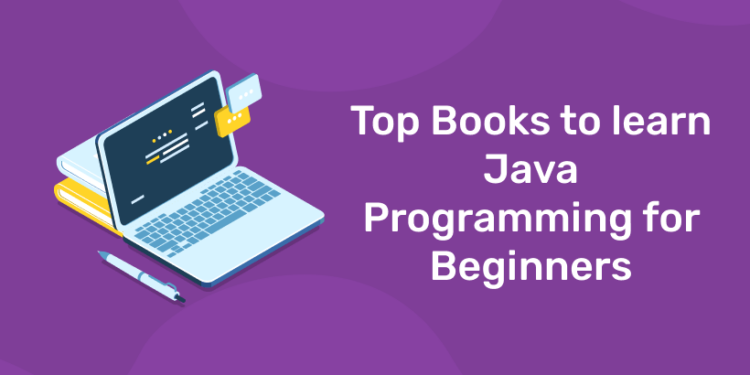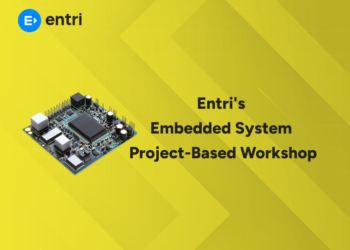Java, the most popular high-level programming language runs more than 3 billion devices. This computing platform is a class-based and object-oriented programming language that is widely used by programmers. The java compiled code works on all platforms that support Java as it serves the write once run anywhere purpose. Java is also known to be one of the secure programming languages developed.
Learning Java begins with single-line comments to complex syntax structures. Prime numbers, Fibonacci series, palindrome numbers, and factorial numbers are a few of the basic programs in Java. It is necessary for IT industry aspirants learn Java programming language for competitive exams and jobs. Hence, it is important to learn it from the basic level. The following article gives a glimpse on the books best for beginners to kick-start their journey with Java.
Make learning Java an interesting process!
Top 10 books to learn Java Programming for Beginners
i) Head First Java by Kathy Sierra and Bert Bates
This book published by Shroff/O’Reilly explains topics and concepts in understandable terms. The java programming concepts are depicted in a way that it relates to real life analogies. The book covers object oriented programming concepts in detail. Distributed programming with RMI, network sockets and threads and common object oriented mistakes are the major topics covered.
ii) Clean Code: A Handbook of Agile Software Craftmanship by Robert Cecil Martin a.k.a Uncle Bob
Clean Code, published by Pearson Education lays emphasis on the object oriented programming principles. Divided into three sections in accordance to the level of complexity, each section of the book contains (a) patterns, practices, and principles (b) wide range of case studies (c) list of techniques employed while curating the case studies. Different programming practices and techniques are also been taught in the book.
iii) Java: The Complete Reference Eleventh Edition by Herbert Schildt
This book published by the popular McGraw Hill Education teaches concepts by knitting the world of Java through real-world references. The book is a fully featured material for Java programming and is well-structured in content making it a comprehensive and convenient book of reference. Basic java concepts such as Java 8 APIs, Java language syntax, fundamental programming principles and keyword are thoroughly covered in the book along with extensive topics namely swing, applets, servlets and JavaBeans.
iv) Java Concurrency in Practice by Brian Goetz
This book published by Addison-Wesley Professional and authored by Brian Goetz with Tim Peierls, Joshua Bloch, Joseph Bowbeer, David Holmes and Doug Lea focuses mainly on learning multi-threading and concurrency in Java. This book is highly recommended by Java developers.
v) Effective Java by Joshua Bloch
Published by Addison Wesley, ‘Effective Java’ is known to be one of the must-have book for Java beginners and programmers. The recent edition of the book is mainly centered around Java 7.8 and 9. With around 78 best practices included in the book, it guides the programmer in effective coding. Concurrency, Methods and Generics are few of the sections under the 11 distinct sections into which the book’s best practices have been categorised.
Get the latest updates on competitive examination here
vi) Java: A Beginner’s Guide Eighth Edition by Herbert Schildt
Seasoned Java programmers highly recommend the ‘Java: A Beginner’s Guide Eighth Edition’ published by McGraw Hill Education. Known to be one of the most complete and comprehensive books in deeper learning of Java, this book consists of well designed quiz sections with hand-on exercises in each chapter for extensive learning purposes enabling the learner to evaluate their understanding. Complex topics and concepts namely functional interfaces and lambda expressions are also dealt in the book.
vii) Java Performance: The Definitive Guide by Scott Oaks
Published by O’Reilly Media, this book covers advanced concepts in Java in an effectively simple manner. Concepts such as JVM, Garbage collection, performance tuning are extensively covered in the book. The book places importance on performance feature synchronization, Java threading maximization, Java-driven database application performance improvement, performance issue tackling in Java SE APIs and Java EE etc.
viii) Spring in Action by Craig Walls
Manning Publications’s ‘Spring in Action’ imparts in-depth understanding of Spring, one of heavily used frameworks in Java for web application development. It guides the learners in comprehending the way in which the Spring framework fills up significant gaps. The book also deals with concepts like JDBC.
ix) Test Driven by Lasse Koskela
Published by Manning Publications, this book is suggested for learners focusing on building unique automation testing programs. As the name suggests, the book consists of industry-relevant references and examples in order to test drive Java code. Testing Java EE components like JSPs, Servlets and Spring Controllers, the Fit framework and acceptance test-driven development are certain topics covered in the book.
x) Mastering Java Machine Learning by Uday Kamath
Packt Publications’s ‘Mastering Java Machine Learning’ highlights the importance of Java programming language by providing conceptual understanding from basics such as probability, linear algebra and statistics. General issues such as classification, big data, clustering, machine learning and text-mining are also covered in the book. Focusing on different techniques that could be employed in machine learning, the book has included around 10 real-life case studies.
Learn more about Java programming with Entri App
With high demand for the field of programming and programme developers, a career in this field takes one’s potential a step ahead of competitors. Download the Entri Learning App to get a detailed understanding of different concepts relevant to one’s field. Make it a journey to success with the best learning tool.











